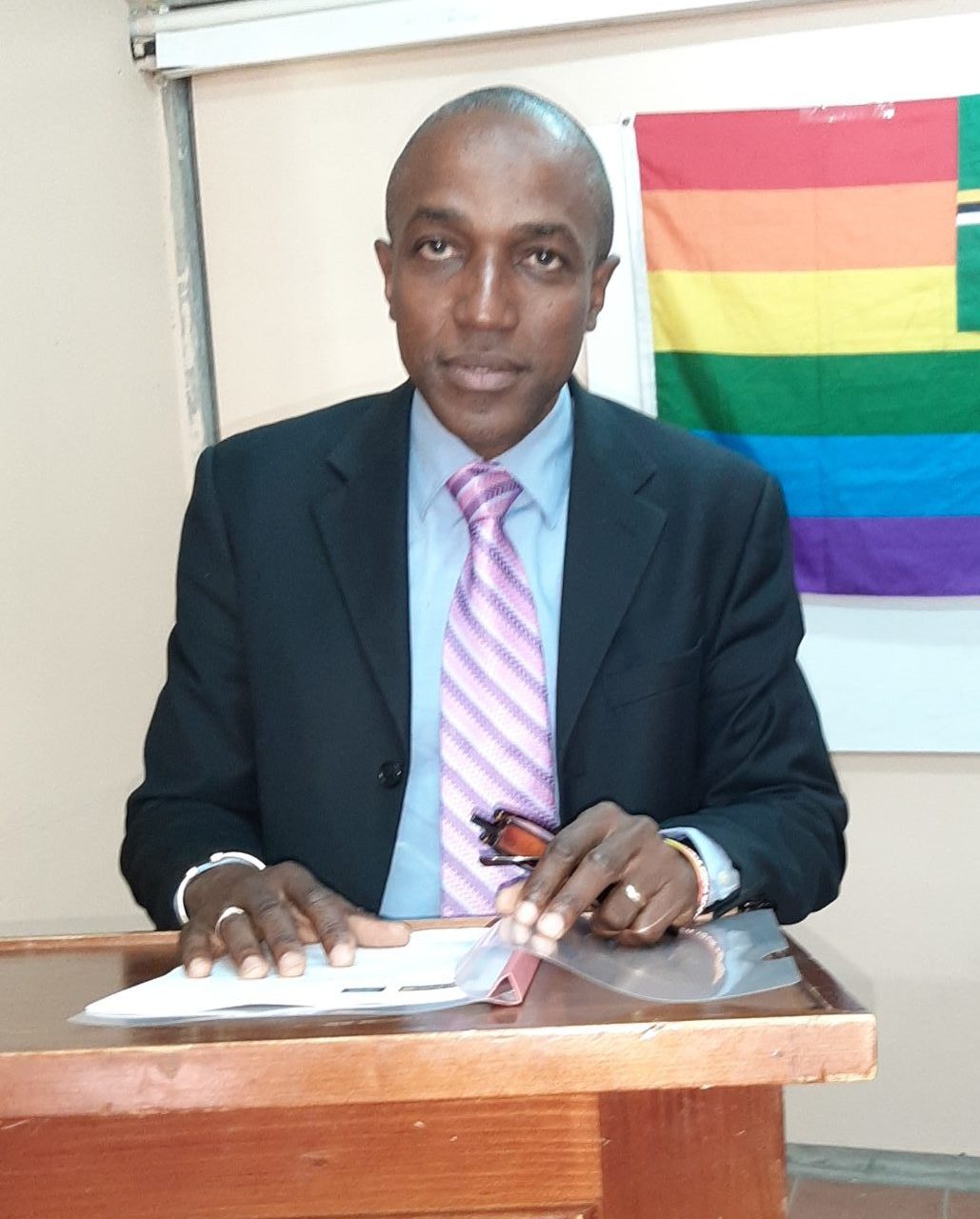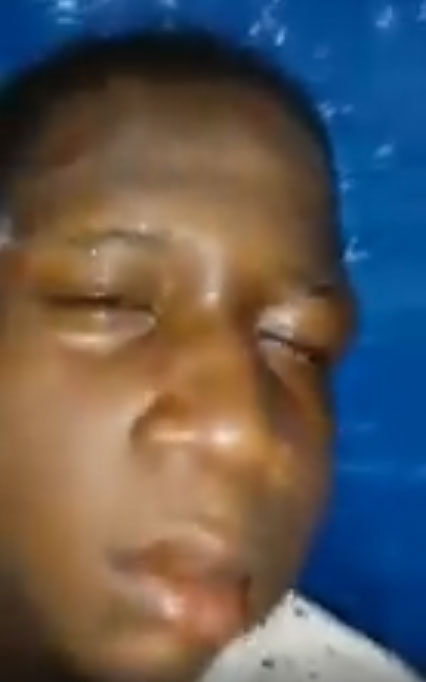‘Social distancing’ is how LGBT people have always had to live
Maurice Tomlinson of Jamaica and Canada has been involved in…
Social distancing has been a way of life for LGBT people long before Covid-19.

COMMENTARY
By Maurice Tomlinson
As news reports with dire predictions about Covid-19 began to multiply exponentially, I quickly realized that the inevitable physical distancing required and resulting social isolation was not as big a deal for me as I suspect it is for many other people. Investigating my own sense of calm, I wondered if I was missing something, some quality that allowed me to be untroubled with the idea of quarantining.
Then I saw a Facebook post from a young gay Jamaican friend that provided an epiphany: for decades, Jamaica has been “preparing” LGBTQ+ citizens, like myself, for this pandemic of social distance and isolation. In my friend’s words, which I’m paraphrasing only slightly, “We speak now about social distancing, but it’s something I’ve been doing for a long time because of homophobia.”
You see, as queer Jamaicans – and queer global citizens, really – we’ve been forced to engage in social distancing as a matter of survival for so long that it is now part of our daily existence. My friend regularly posts about the anti-gay torment that he experiences from schoolmates, work colleagues, community members, and church leaders. He has had to move houses multiple times in the past year because of homophobic assaults. His mental health is fragile, and he has tried self-help by forming an online support group for others who are undergoing a similar type of trauma.
Most of the time, he stays home alone and social media is the only way that he maintains a sense of community, as gatherings could prove deadly for him. Jamaicans have not been shy about invading the residences of suspected gay men and forcibly ejecting them. And when the police are called to the scene, the attackers are never arrested. Community members act with impunity knowing that there will be few if any consequences for trampling on the rights of LGBTQ+ citizens. And so, queer Jamaicans prefer to be invisible.
The practice of fearful distancing travels with LGBTQ+ Jamaicans wherever we go in the world. When I first came to Canada in 2011 to be with my husband, I had no car and he tried repeatedly to get me to explore Toronto on my own while he went to work. He assured me that public transit was perfectly safe, but I remained unconvinced. It had been decades since I had taken public transportation, much less by myself. I was just too scared of crowds or being on public transit because of the relentless barrage of homophobia I knew I would experience.

In Jamaica, there is always the very real risk that even on a bus an anti-gay mob can form with very little notice. That was what happened to Jason Williams, another gay Jamaican on January 7, 2020. For safety, Jason normally travelled with friends but on that fateful evening he boarded a bus alone. Without warning, Jason was hauled off the vehicle by the driver and passengers after the driver said that he didn’t want a “battyman” (homosexual) on his bus. The group then beat Jason to a pulp and left him bleeding on the pavement. Although Jason reported the matter to the police, his attackers walked free.
On February 23, 2020 another young man, Rogerrie, was stoned and chased by security guards at a popular upscale hotel in Kingston because he “dared” to sit with gay friends in a public park across from the hotel’s entrance. After the savage attack, Rogerrie locked himself in his house for four days. He eventually went to the police and the hotel management to report the attack, but he was dismissed.
Queer Jamaicans now want to flee the island, but onerous visas requirements make it very difficult for them to do so. Organizations set up to help LGBTQ+ refugees can’t rescue the overwhelming number of people who want or need to escape their tormentors. So, the only sustainable solution is to try and change the situation in Jamaica, and in countries around the world that encourage, enable and allow homophobia to persist.
That is why I am working with local and international partners, including the Canadian HIV/AIDS Legal Network where I am currently employed, to get rid of Jamaica’s archaic anti-sodomy law. This British colonial statute criminalizes all forms of consensual intimacy between men, with up to 10 years imprisonment at hard labour. And in 2012, the law was made worse as people who are convicted and released must register as sex offenders and always carry a pass denoting this or face up to 12 months imprisonment plus a JA$1 million (about USD$9,000) fine. The law effectively makes gay Jamaicans “unapprehended criminals” and gives licence for homophobic abuse by state and non-state actors alike. Additionally, the law drives men who have sex with men (MSM) away from effective HIV interventions and contributes to Jamaica having the highest HIV prevalence rate among MSM in the western hemisphere, if not the world, at 33%. Given the pandemic we are currently experiencing, surely people can appreciate the serious nature of this tragically high number.
On June 9, 2020, I will be before the Supreme Court of Jamaica challenging this odious law and the government itself that continues to uphold it. I will also be facing off against 10 religious groups that the court has allowed to intervene as interested parties. The law is supported by many Jamaican churches, which reflects the extreme right-wing anti-LGBTQ+ ideology that is sustained by their North American counterparts.
Of course, homophobia is not the only social “contagion” that isolates people. Another friend shared that being diagnosed with HIV in the ’90s made him avoid society out of fear of backlash, including violence. People who use drugs, sex workers, prisoners, and many other marginalized groups often live with the devastating consequences of societal rejection. These are the same groups that will be disproportionately affected by the current Covid-19 pandemic, and the people who will be left behind as the rest of society begins to heal.
Simply put, much of the world is now experiencing what marginalized groups have endured for years. We can only hope that this period of mass social isolation will foster empathy for those of us who bear the brunt of societal rejection and “distancing.” May we all emerge from this challenging time with a new commitment to making sure that everyone is included, and none of our human rights are trampled. In the same way that our collective public health is jeopardized when any of us is infected with Covid-19, “until we are all free, we are none of us free.”
Related articles:
- Activists demand full probe of Jamaica bus attack (
- Homophobic attack by guards at upscale Jamaica hotel (
- Why I fight the Jamaican anti-sodomy law (February 2016, 76crimes.com)




